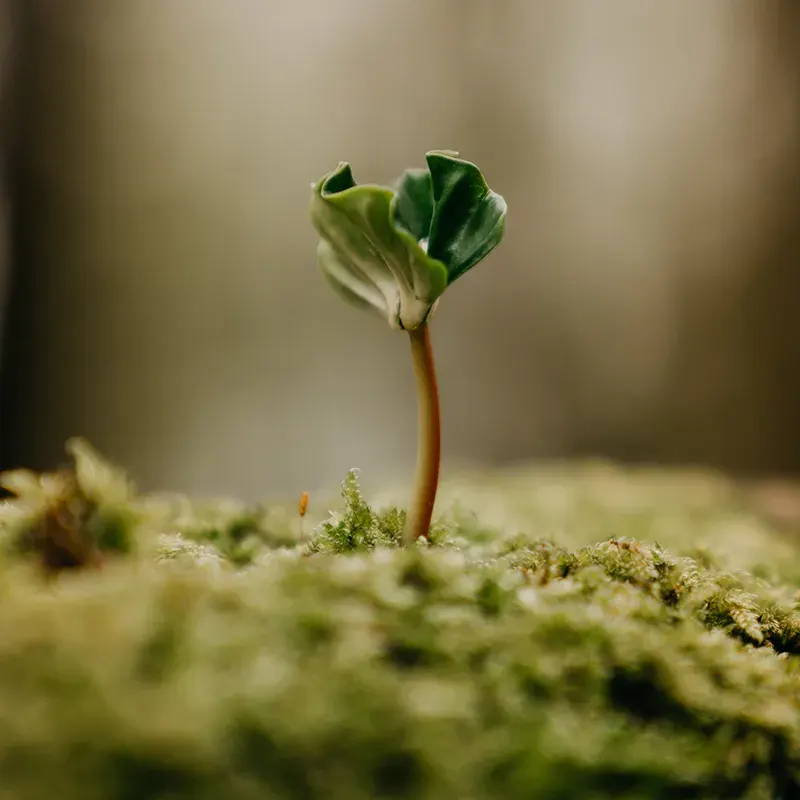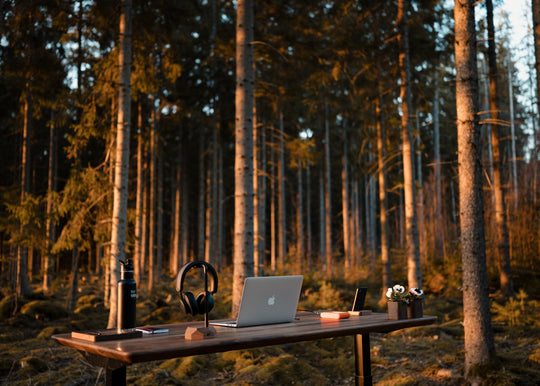While exploring the significance of forests in the future of the Earth and of human health, we decided to consult an expert of the matter – a forester Jakub Wencek, also known as @tanczacachmura (dancing cloud) on Instagram.

The forester’s perspective. Interview with Jakub Wencek
Photo by @tanczacachmura
You organize forest walks where you talk about, for example, shinrin yoku. What do you think about forest baths: why is it beneficial to spend time this way?
Mother nature has always taken care of man; he was strongly connected to the forest, which was a haven, a home, a source of food, and medication in form of healing herbs.
This symbiosis lasted, uninterrupted, for centuries. However, man’s industrial ambitions led him to start taking more from nature than he could give back. As a consequence, people grew separate from nature and the forest. They moved to big cities and have completely lost their connection with nature.
Shiryoku, translated as a ‘forest bath’, is a health promoting practice originating in Japan. The 1980s saw the implementation of a scheme popularising the healing physical and psychological properties of nature. Japan was then a country of overworked, tired, burnt out, and perpetually stressed people, which required a solution to bring back mental balance and physical wellbeing.
A Forest Bath is a slow and steady immersion into the forest ambiance while engaging all senses. Whether we call such excursions forest ‘baths’ or ‘walks’ is unimportant. What matters is the deepening of our relationship with nature using our own senses to the fullest extent, enhancing this connection. Through conscious engagement of senses such as: sight, smell, taste, touch, and hearing, we can positively impact our bodies.
Thanks to the essential oils, the fungus spores, and an array of beneficial forest organisms filling the air, our blood pressure lowers after a 2 hour walk. Moreover, the levels of the stress hormone in our body decrease, suggesting there’s nothing but advantages to taking forest baths or walks.
We unconsciously choose the forest as a place of leisure, the quietness and stillness of which provides us ample space to relax and slow down. Our bodies know what they need. All we need to do is to cooperate and take a walk in the forest. I highly recommend those trips for everyone, regardless of age.
During my forest walks, I often talk about shinrin yoku trying to inspire further research on the subject and encourage solitary forest baths.
Photo by @tanczacachmura
What should we know before embarking on an unguided walk in the forest?
We need to remember that we are visitors, and we must respect our host.
First of all, absolutely no littering. We are always obligated to pick up our trash. We shouldn’t as much as leave a banana peel, as it is not a natural waste for our, specifically Polish, geographical zone.
We should only wander along the designated trails if the area we visit requires it. We must also be mindful of areas where entry is prohibited, for example animal refuges - young forests up to 4 meters high where they are most likely to hide.
Be gentle and quiet, don’t disturb birds or other animals.
Photo by @tanczacachmura
What do you think of the tree planting initiatives in Poland and around the world?
Unfortunately, we live in a world where climate changes are already prominent and accelerating every year. For example, the decrease of groundwater levels heavily impacts the forests. The absence of water in many places weakens or even kills them. The Polish Academy of Science recently published a report which indicates that today’s 40-year-olds will see 70% of the world’s forests dry up in their lifetime. Personally, I find this vision of the future terrifying. That’s why all sorts of campaigns and initiatives which aim to seed areas where forests previously grew are so important. In Poland, the restoration and afforestation efforts have improved greatly over the past 100 years. However, on the global scale, we can see how quickly world forests deplete due to human activity. I am specifically referring to agricultural deforestation taking place in tropical forests or the South American jungles.
The forest provides a kind of cover for the soil, allowing it to retain moisture, lower temperature, and improve our wellbeing. It would seem these are all things we should appreciate; however, we humans like to complicate everything.
Photo by @tanczacachmura
How would you rate Polish people’s relationship with forests? Has anything changed for the better in recent years?
My professional role, so closely related to forests, has allowed me to observe them for almost 20 years now. It’s a sufficiently long time to be able to tell how society reacts to forests. I see improvement in people’s attitudes towards littering. Even a few years ago, piles of trash (e.g., waste produced by renovations) were a common sight in Polish forests. Nowadays, there’s less of those – at least in my area. The waste management system in this country looks better each year, however you can still often find rubbish – meaning, people need more education on the topic. The pandemic has revealed how much people missed forests and nature. For a short while, the forest was one of the few places where you could safely stroll and breathe fresh air. In that moment, many of us were reminded of nature, of where we came from, and where we are heading.
I have been seeing more and more people consciously enjoying the forest lately, whether during work or on my walks. They come here to escape the everyday buzz, the noises of a big city, the stresses of modern life. To let go and simply exist in the moment – in the forest. To gain mental clarity, to stop rushing, to cherish the moment, the nature, and the woods.
Thank you for sharing with us.








